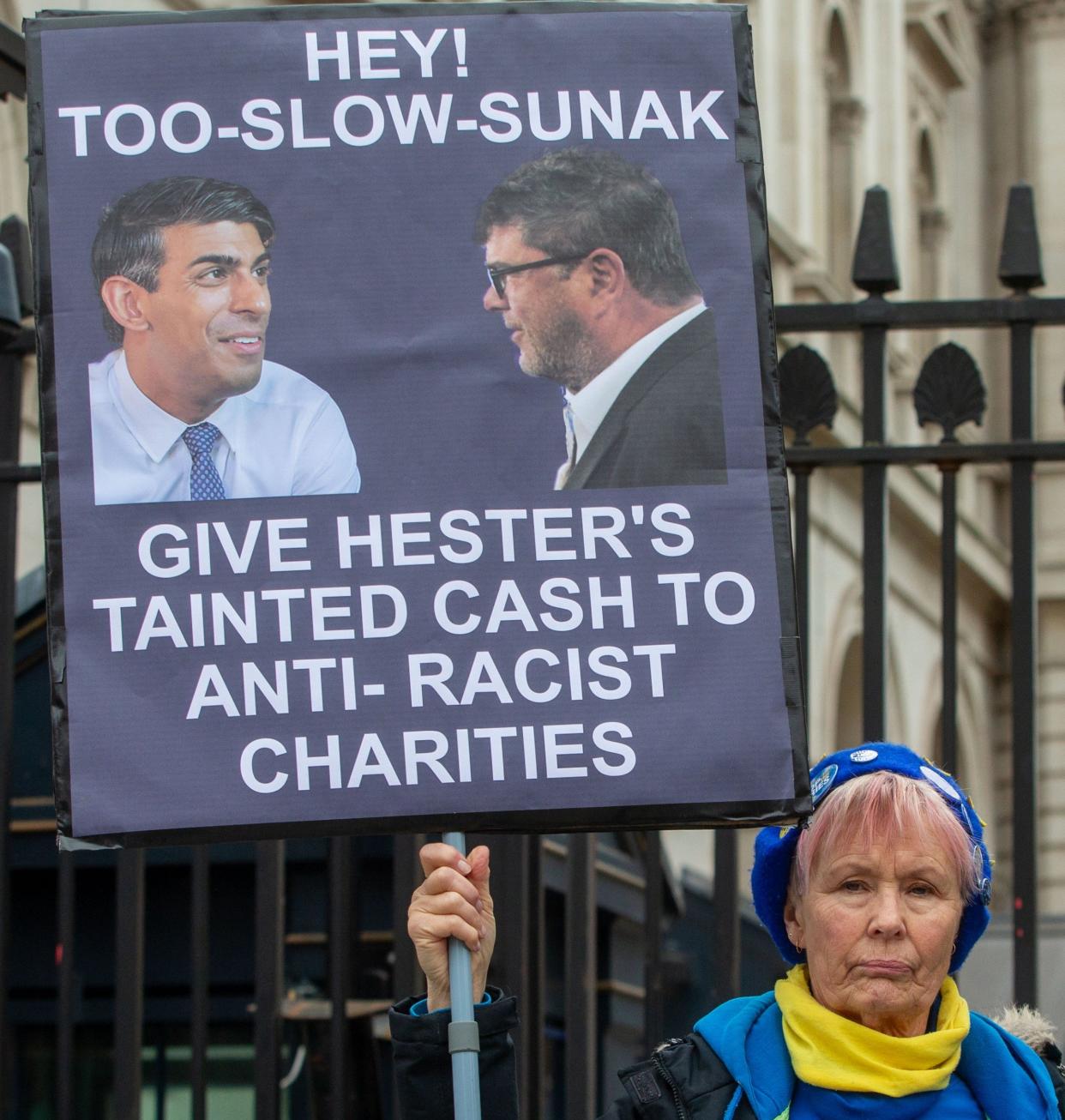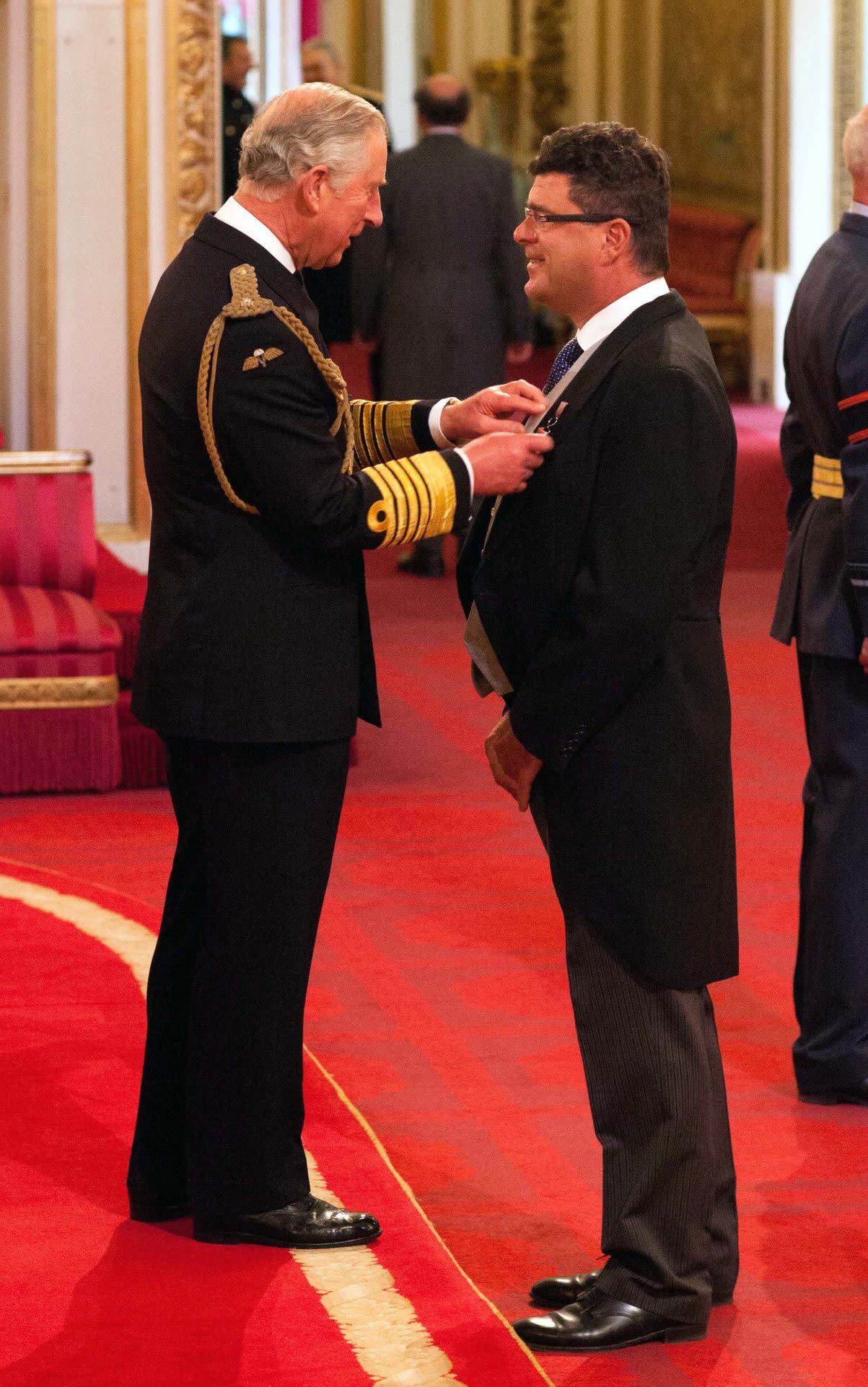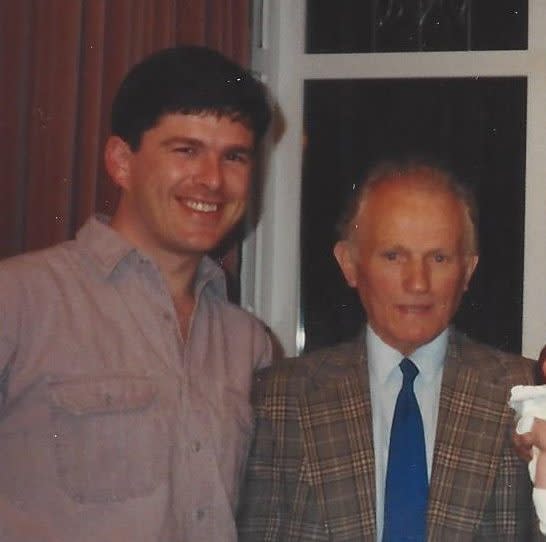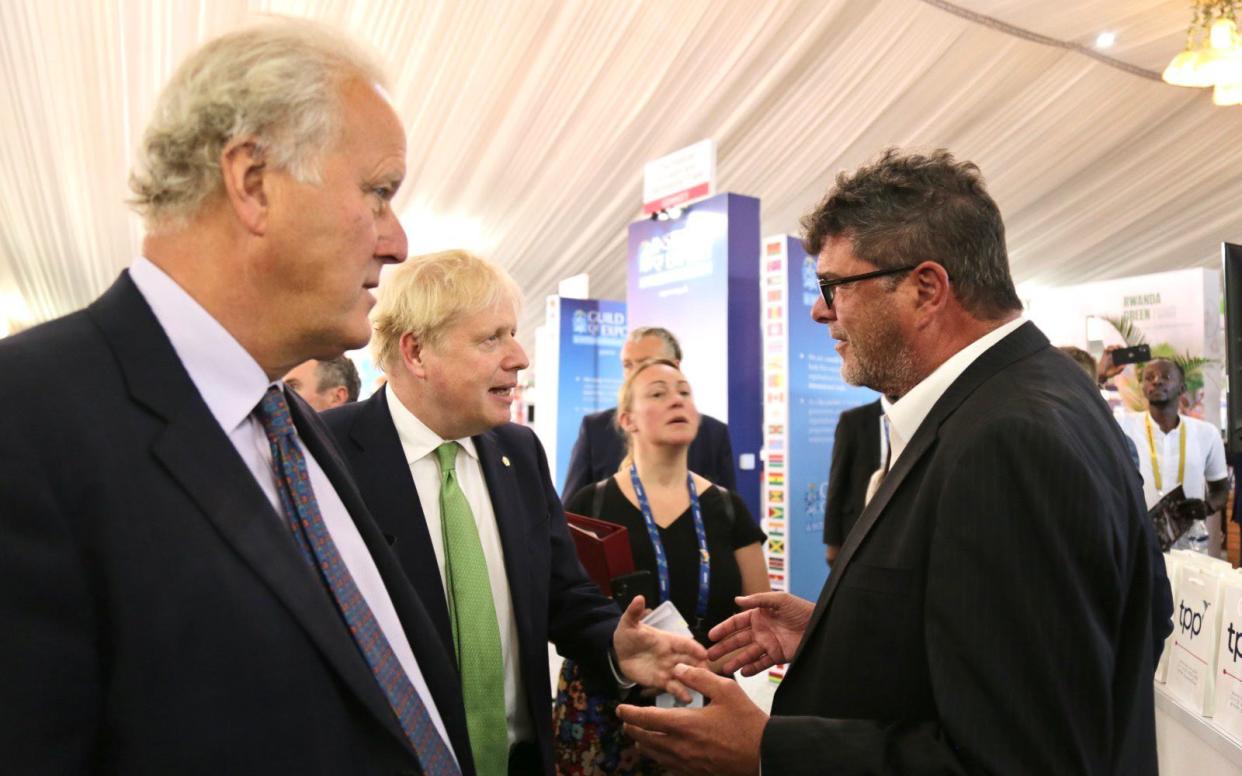How Frank Hester became Britain’s most infamous businessman – and unlikely Tory donor

It’s just as well they had changed the name. A little over a fortnight ago, the Conservative Party held its annual Winter Ball at Raffles, the swanky Old War Office hotel in Westminster. The event, at which wealthy donors rub shoulders with Cabinet ministers and bid on auction lots (one attendee stumped up £25,000 for a Japanese meal with Jeremy Hunt), used to be called the Black and White Ball.
Sitting at the top table with Rishi Sunak, the Prime Minister – enjoying a meal of rainbow trout with squid ink, Hereford beef fillet and chocolate pudding – was the businessman Frank Hester. Earlier that day, the Electoral Commission had announced the health-care technology entrepreneur had become the largest ever Tory donor after boosting the party’s coffers to the tune of £10 million over the previous year.
This included a £5 million donation he made personally and another £5 million that came from his software firm, which has won large contracts from the NHS and the Department of Health and Social Care. He also gave Sunak the use of a helicopter for a political visit, valued at £15,000. There are reports he was planning to donate another £5 million before the general election.
This week, the 58-year-old founder and chief executive of The Phoenix Partnership (TPP) became not just the Tory party’s biggest donor, but also its most notorious, following newspaper reports about comments he is alleged to have made in company meetings.
On Tuesday, The Guardian reported that Hester said looking at Diane Abbott “[made him] want to hate all black women”, and that the former Labour (now independent) MP “should be shot”.
The same newspaper has since reported that Hester, who made last year’s Sunday Times Rich List with an estimated fortune of £415 million, asked staff on a crowded balcony at the TPP headquarters if there was “no room for the Indians”, before suggesting they climb on a train roof during a meeting. It is alleged he also said he made “a lot of jokes about racism”.

Hester has since said he is “deeply sorry”. In a post on the social-media site X (formerly Twitter), a spokesman for the businessman admitted Hester had made “rude” comments about Abbott, but added they had “nothing to do with her gender nor colour of skin”.
At Prime Minister’s Questions on Wednesday, Keir Starmer asked: “Is the Prime Minister proud to be bankrolled by someone using racist and misogynistic language?” He added that the Prime Minister should pluck up the “courage to hand back the £10 million”.
So far, Sunak and the Conservative Party have resisted calls to return Hester’s donation. However, the lingering scandal will continue to raise difficult questions about political funding in the UK, whether donors can effectively buy access to ministers, and if parties are doing enough to vet those who bankroll them.
In many ways, Hester is an atypical Tory donor. Hailing from an avowedly working-class background, he is a fierce critic of Margaret Thatcher’s handling of the miners’ strike. Speaking to The Telegraph last month, he said: “That left a very bitter taste in my mouth, seeing South Yorkshire and Durham devastated by the pit closures. Communities that could never recover from that. It’s one of the most dreadful things that’s happened in our country, I think.”
Conversely, he is full of praise for the reforms of the National Health Service that took place under Tony Blair and his health secretary Alan Milburn. Leeds-based TPP is reported to have won £400 million of NHS and prison-service contracts in the past eight years. Company records show that The Phoenix Partnership (Leeds), Hester’s main operating company, made profits before tax of £40 million on revenue of £80 million in the 2022/23 financial year (the last for which accounts have been filed).

Hester has denied his political donations are an attempt to win favour for his business, pointing out that most of his contracts are awarded by GP practices, which are private organisations, or individual hospital trusts, not central government. He has in the past voted for the Green Party or spoilt his ballot paper.
He is said to have been impressed by Sunak and believes the Prime Minister’s enthusiasm for using data and technology to transform access to health care is genuine. In last week’s Budget, Jeremy Hunt announced an additional £6 billion for the NHS to improve productivity and cut waiting lists using AI.
Hester was raised in Leeds by parents who had emigrated from Ireland. His father left school when he was 14 to build hay sheds and subsequently developed respiratory problems from the work.

Hester was a whizz with Rubik’s Cubes and jigsaw puzzles as a child and found his vocation when he was given his first computer. He used this to build a program to handle the payroll for his parents’ plastering business. =
Those who have met Hester describe the thickset businessman as “a typical computer nerd”, who is somewhat socially awkward and finds it difficult to maintain eye contact.
After initially training to become a priest, Hester joined the Halifax bank. The idea for his company came from seeing his former wife, a GP, struggling with the glitchy software used by her practice. In 2005, he started building an alternative with a university friend. By the late 2010s, it was one of the two main providers in the country, with software that ensured medical records of patients were available across the NHS.
Hester remains the sole director and shareholder of TPP, meaning he is answerable to no one but himself. He has been described as gruff and no-nonsense by staff, but also as extremely generous – providing a free bar at a local pub on Fridays and inviting employees on sailing trips. When TPP reached a valuation of £1 billion, Hester threw a “unicorn party” for staff at his house near Leeds, complete with live horses fitted with horns. .

Those close to the Conservative Party point out that it can’t really afford to be that picky about who it accepts money from these days. One longtime Tory donor says he gives less than he used to and many of the people that “attended Conservative Party fundraising events in the past have been conspicuous by their absence at recent shindigs”.
He points out that there has been a large increase in British-Asian donors since Sunak entered No 10. Another Tory donor suggests this may be one reason why Tory MPs have been reluctant to depose the Prime Minister. Of course, this new cadre of benefactors also represents one of the important constituencies that may have been angered by Hester’s comments.
Certainly, the recent schism in the Tory Party has been matched in its donor base. Peter Cruddas, the businessman and philanthropist who has given more than £3 million to the Conservatives since 2010, was a strong supporter of Boris Johnson, while Jon Moynihan, the businessman and chairman of Vote Leave, backed Liz Truss.
A number of former Tory donors are also known to have defected to Labour, including Kasim Kutay, who runs the life-sciences’ investor Novo Holdings; Gareth Quarry, the entrepreneur and investor; and Richard Walker, the boss of the Iceland supermarket chain.
The billionaire property tycoon Nick Candy, who donated to the Conservatives under Boris Johnson, said earlier this year that he might support Labour at the next election: “Maybe it’s time for some change.” Last Thursday, Candy’s wife, Holly Valance, a former star of the daytime-television soap Neighbours, announced her support for Reform UK and said she hopes Nigel Farage will play a key role in the upcoming election.
Political advisers say that even many of those donors who remain loyal to the Conservative cause are starting to think one step ahead, assuming that the party will be ousted at the next election and beginning to channel their money towards those Tory MPs who have already started jostling for position ahead of the next leadership contest.
Despite trailing Labour in the polls for months, the Conservative Party can still draw on significant financial firepower. But the Hester scandal has yet again highlighted a very murky area of British political life.


